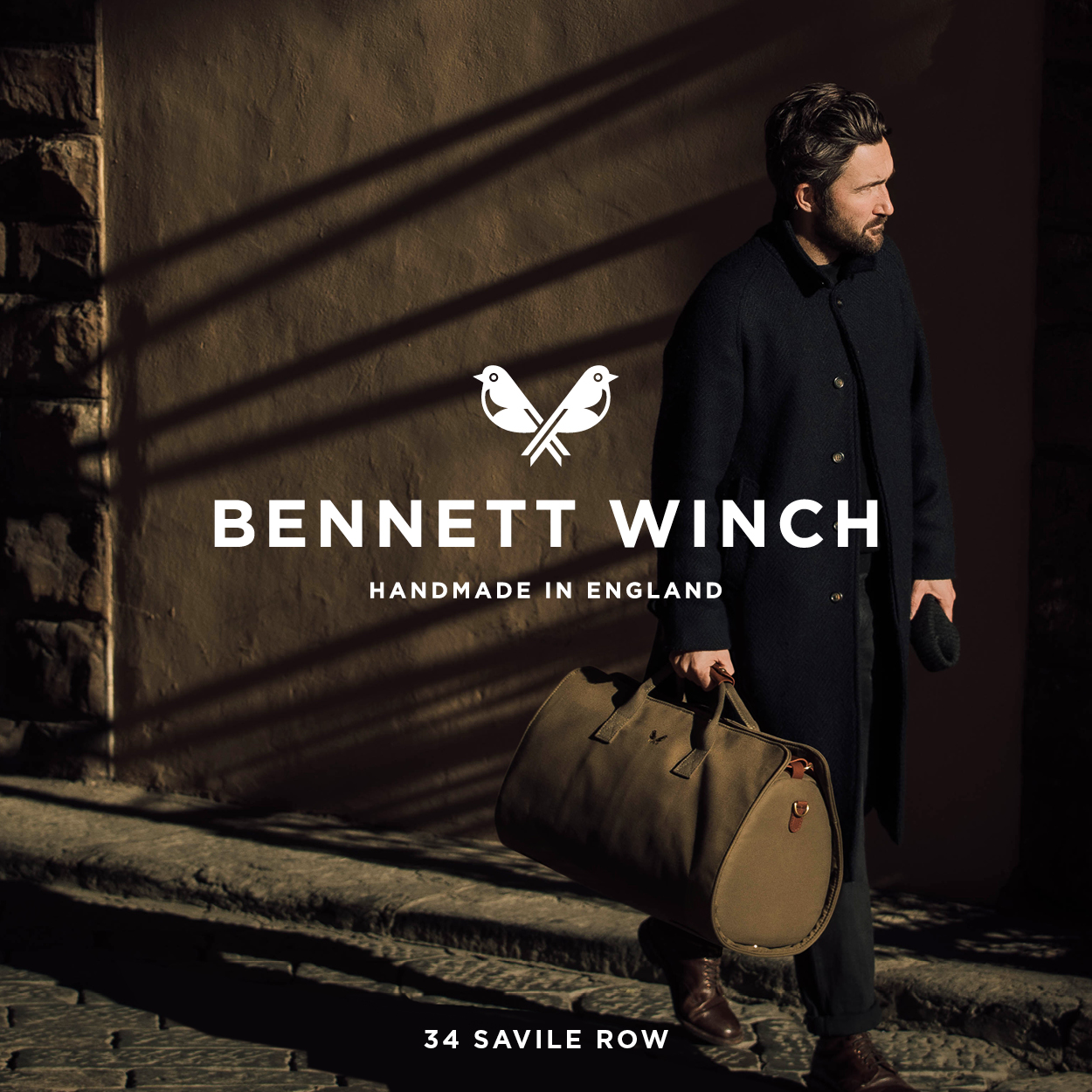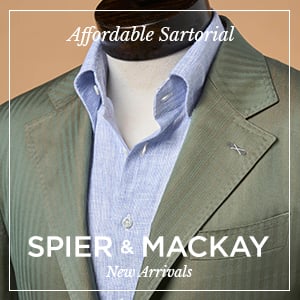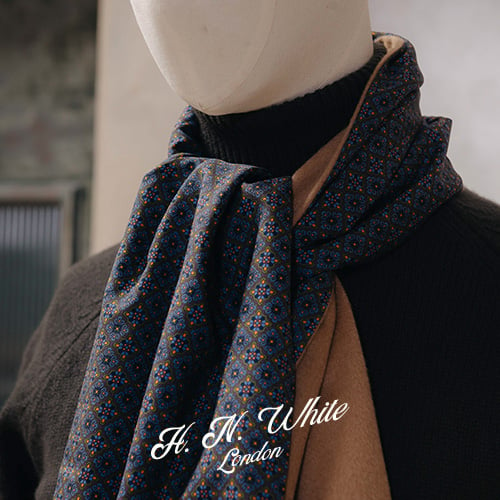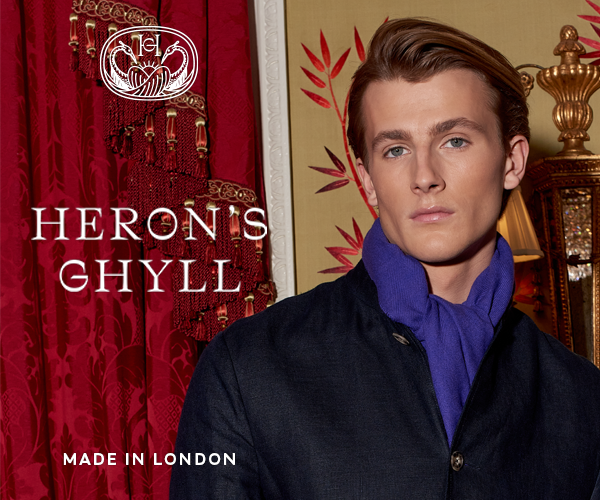Chester Mox hand-sewn leather folio: Review

Chester Mox is Bellanie Salcedo, a leatherworker making saddle-stitched goods in Los Angeles, California.
I’ve known Bellanie for several years, having first covered her on PS back in 2013. Since then, however, her work has improved, following an apprenticeship programme with former Hermes artisan Beatrice Amblard in San Francisco.
If you look at the pieces featured in the original PS article, and then compare them to the ones on the Chester Mox site today, you can see how much finer the stitching is. Other areas like inking have also improved.
The product is now pretty much on a par with the other hand-sewing leatherworkers we cover, such as Equus in the UK, Serge Amoruso in France, and perhaps even Ortus in Japan.
Like those craftspeople, Chester Mox is cheaper than anything from a big brand such as Hermes. Which is the first reason readers should take notice.
The second is that, unlike them, Bellanie is based in the US. This makes her more of a rarity, and more accessible for the 46% of PS readers that in the States.
In order to try the work, and talk about her first hand on Permanent Style, I asked Bellanie to make a leather folio for me - what she calls the Monterey model.
As most Chester Mox products are made to order, there’s lots of opportunity for small changes and personalisation. On the folio, as standard, you can select leather, lining, lock and thread, and add a pen holder or phone pouch inside.
The last three mean a price uplift ($150 for the extra pouch) but it’s still excellent value for money. The basic folio starts at $900, and big brands would be four or five times that.
Bellanie also offers a bespoke service, creating original designs in collaboration with the client, which is rather more expensive. Prices are on request there, as the projects vary so much.
With my folio, I went for the same mid-brown leather (‘mocha’) that is shown by default on the website. I opted for a lining in that too, and iPad-sized and phone-sized interior pockets. Alcantara (artificial suede) would have been nice inside, but that precludes internal pockets, which I know I’ll find useful.
I also upgraded to linen thread, and requested my initials stamped inside using matte-gold foil (black, clear and silver are also available, as well as the Chester Mox logo).
With the hardware, I made a special request.
I’ve always liked uncoated metals which tarnish naturally over time. It gives you the option of keeping them polished (perhaps every few weeks) to create contrast with the ageing leather, or letting them gain a patina.
Bellanie hadn’t used raw brass like this before, but after talking to her suppliers, she found something suitable, and it’s now a standard option on the Chester Mox website.
I also experienced a little of the bespoke process, as I wanted slightly tweaked internal pockets. This was done very professionally, with Bellanie sending me a PDF layout of the internal sections each time.
There were some delays forced on us by Covid, but after that unavoidable gap, I had the folio. You can see it in the pictures around this article - in the shoot that featured this jacket, and in images Bellanie took of it before sending.
I was impressed by the feel of the veg-tan leather, which is satisfyingly thick but also has a pleasing suppleness. It’s lovely in the hand. And also by that fine stitching. The two together are just beautiful.
The lock looked excellent too. In the images here you can already see that the lock looks more natural than with the same model online. Since then it has only aged more.
The inking on the edges was faultless too, and the initials inside were precise and strong. Surprisingly often foil work like this simply rubs off after a few weeks.
The only issue was with the top part of the lock, on the folio’s flap. Its two brass plates, on the inside and outside, were not aligned exactly.
Bellanie explained how difficult this part of the procedure is, with solid brass nails having to be trimmed down by eye, and then put in with a ‘perloir’ setter (a tool that creates a domed finish on the nailhead).
She also thought the issue might have been caused by the holes on the front and backplate being misaligned, which was something to bring up with the hardware supplier.
Either way, Bellanie said she wanted to take it back and remake it. She also wanted to tweak a couple of points on the execution of the pockets.
Again, a few delays, but after the summer I received the second folio. The pockets were now perfect, but there was still a small misalignment of the front and backplate (above). It had been reduced - with the first version, the misalignment was about double this - but it was noticeable.
Bellanie said that this time she had checked and there was nothing wrong with the hardware. It was simply a matter of the manual way the two plates were attached.
Historically, she had used plates with pre-drilled holes that screwed together. These always aligned perfectly, but over time the screws could work loose, and need replacing. So she switched to this more traditional and manual technique, which requires holes to be hand punched in the metal and the leather, before the hand-cut nail is hammered through.
This is much stronger apparently, but also often doesn’t align perfectly, because the nail moves around as it is punched through. The latter isn’t helped by the fact you have to hammer in circular motions, in order to create the domed finish on the top. This is shown briefly in the video below.
The misalignment is small, and Bellanie says it’s something she was told Hermes actually stopped doing because customers didn’t appreciate it was a result of artisanal work.
I have to say, if I bought an Hermes folio with that issue, I would assume it was a mistake too. It looks wrong. And just as importantly, I don’t think the staff would be able to explain why it was there.
And while this method may be stronger, I would also return a folio where the screws came out after a year or two, as that would definitely be a fault.
Still, the misalignment doesn’t bother me that much, and I have really enjoyed using the folio. It is beautiful and luxurious in just the ways I love - simple and subtle. Those things easily outweigh that little point of execution.
But at the same time, I’d understand if a reader thought this wasn’t acceptable. As with many things, the personal connection with the craftsperson, and appreciating everything that’s gone into the product, makes a big difference.
Clothes shown detailed in this previous article
Photography: Alex Natt @adnatt and Chester Mox






































Hallo Simon, your new portfolio is such a neat pice of art. However looking at your full initials I wonder again, what is your family background, because with name like that and based on other hints troughout years it seems to me, that you are from higher echelons of UK society. I understand if you want to keep this as a private matter, but could you share something of it with us, should you not mind?
Nothing special to report there I’m afraid Ondrej. I happen to have an extra middle name, but the family is from Manchester and South London, without any suggestions of upper class standing along the way. And I’d certainly never pretend to that
Ondrej, we readers from a certain unknown country consider Simon uppermost class that is King in the Domain of men’s fashion due to his good taste and didactic talent! (But I disagree with his father-in-law’s favorite philosopher Collingwood.)
Thank you for the review. I find portfolios very pretty and have one myself. But somehow it’s much less practical than a bag or a tote bag. Can you describe your everyday use? Maybe then I will find excuses to use mine more often.
I know what you mean – they are not so easy in the hand, and not so good at carrying anything that isn’t quite small or flat.
I use a tote more often, but a folio usually when I’m carrying a laptop, and perhaps don’t have too many other things. Eg going round the corner from home to work in a cafe for a couple of hours.
Sounds like a nice use for it. Thank you!
Unfortunately using a folio in that fashion makes you (and your iPad / phone / etc) an easy target for a thief on a bike.
I have a couple but haven’t found a practical use for them.
Good looking folio Simon but misalignment sets me back – I don’t think in this level it should happen. In another note You should commission something from Rory Nichols as his work is exceptional and definitely level up front when rest artisans you mentioned earlier in the article.
Thank you Henry, he has been mentioned before. What I’ve seen hasn’t been quite at the same level, but that’s only one or two pieces so I’d certainly reserve any judgment until I’d seen more in person
Looks gorgeous. I think I’d definitely rather the aligned plates personally and tighten the screws every now and then.
In regards to the alcantara, why that rather than natural suede?
Natural suede is usually not considered tough enough
How about nubuck, which might be closer in feel to alcantara as well as tougher than suede?
That is a nice option, but usually thicker and heavier than suede or alcantara. It would create quite a lot of weight and bulk. Also, to an extent the nice thing about using alcantara is the contrast in texture between the leather outside and soft, matte inside
Tell us about the jacket you are wearing. Great texture and color. Would love to know where to get one. Thanks
It’s linked to in the article Doug – here
Beautiful and elegant piece. Btw, screws, bolts and other threaded assemblies will, by their very nature, work themselves loose over time. A lock nut or thread lock adhesive/paste helps mitigate against this.
Simon, an interesting portfolio. But what shocks me is that 46% of your readers are in the USA. Besides this article and the one on Frank Glegg in Fall River, can you direct me to other articles on American made. This is such a large and diverse country that it would be impossible to cover everything, or even a small portion, but I wonder if you have ever solicited suggestions from your US readers for their favorite, high end crafted items? And I do think, that when the travel situation is more clear, you should journey here more. Obviously there is great interest in your advice and perspective. Thanks
Jack
Hi Jack,
Yes there has always been a strong following for Permanent Style in the US.
However, while there are many fine makers in the US, there are far more in England, France and Italy, plus a good deal more scattered around other countries. There is much greater density of classic menswear craft here, so it makes sense that most of the coverage is here. Also, of course, the reason those US readers read the site is coverage of the UK and further afield, rather than just the US. There have always been quite a few US websites on classic menswear, but few in the UK.
I have covered North American makers quite a lot though too. They include:
– Optimo hats in Chicago (several times)
– New York tailor summary (many of them in one article)
– Lee Miller boots
– Horween leather
– Red Rabbit jewellery
– Chris Despos tailoring
– Len Logsdail tailoring
– Paolo Martorano tailoring
– Stephen Temkin hats
– Good Art jewellery
– Wellema hats
Perhaps have a search for some of those
It’s a beautiful thing.
Personally I’d love to see a (hidden) handle so it could be carried as a folio from underneath or using a flip out/ pull out handle.
Thanks Robin. I have had folios like that in the past, but I never liked the look of them using the handle. The case looks a little small and dinky
Looks very nice. I purchased a wallet from Chester Mox a couple of years ago. It was beautifully done and aged nicely.
How does the quality/finish compare to Ortus?
I don’t own any Ortus, but from I remember seeing at The Armoury and when I visited, it’s pretty close. The stitching maybe a little bigger, the edges maybe a touch wider, but these are minor points. Actually, perhaps the thing that makes Ortus stand out so much is the original design development, and the bespoke hardware
Hi Simon, im an old customer of chester mox and i have two wallets one in shell cordovan and one in museum calf. They are very nice pieces and for sure very well made but they are not so practical. The bespoke is a good thing of course but there is also a reason why the classic designs are for many years out there. I wouldnt buy again a wallet from them but from the quality i saw id try other leather goods like eyewear cases in croc etc. Since i often ask for brands suggestions id give you one this time and thats the flat head from japan. The wallets are in my opinion in a very other class.
Thank you George. So you had bespoke wallets made? And what was the issue that made them less than practical?
Sorry for the late answer but i work till late the last weeks. I made a shell cordovan card holder that looks really nice, the leather is very good, the stitching also. The pronlem is when you put the cards in it gets really bulky for its size or you cant pull out the cards so easy. The other was a card wallet from museum calf and i must say thats a very strange leather that i like a lot cause its really thin and durable. The problem is that when you put the cards in you cant put the money and when you put the money in and you are in a hurry then you cant pull out the cards and then pull them in again. I have many many wallets in my life and i know its really difficult to find one that ticks all the boxes but in the end is practical too. I have tried from hermes, lv, japan brands, german brands. I would buy from chester mox again but id get a classic bilfd for example cause the card holders are not their strength. For card holder id look at japan brands.
Thank you George, that’s very helpful
Hello Simon
I had a card case made by Bellania many years ago. The leather has patinaed beautifully over time, the edges are still very good and not a stich has come off. I think looking at their website, and echoing what you mentioned, their stitching is perhaps even better now. Truly a pleasure to use it daily.
Warm regards
Saumil
I have to tell you I got cream cavalry twill trousers made off your recommendation, and I have found them very useful and versatile. Smart enough for work yet still having that distinctive edge.
Hi Simon,
How does this compare to a Frank Clegg folio in the harness belting leather?
Thanks
It’s rather a different kettle of fish, Vin, being entirely hand sewn. That’s someone with two needles, looping a saddle stitch in and out. The leather is also on a different level.
More on spotting quality in leather goods, and comparing pieces, here.
I’m sorry, can you clarify which one your suggesting has leather that’s on another level? The Clegg or this?
This
Lovely piece. The one I use is of a lower quality level than this, but I find it perfect for my needs; I avoid carrying a laptop around whenever I can, so a full size briefcase would be too much (and a bit too formal), and totes don’t really appeal (though I understand why they do to others)
How would you compare the quality of material and make with say Equus?
A similar level to Equus, Jim
I checked Chester Mox’s website and they offer a basically remake of Hermes’ Sac a Depeches at a faction of the actual cost. Knowing that she has been trained by a Hermes technician gives confidence. Great find! Thanks!
Dear Simon,
Do you keep your passport in a leather holder? Don’t you consider passport wallets expose the passport needlessly and passport holder with extra folds or pockets superfluous?
I don’t use a holder, no
I bought a wallet and a business card case from Bellania about 4-5 years ago. The process of selecting design and materials resulted in exactly what I wanted in terms of looks and functionality. Both pieces are in spectacular shape still today. Someone else commented on the lack of functionality around her wallets and card holders; my experience is that hers perform perfectly as one would expect for whatever you design, look nicer than anything mass produced, and hold up / age extremely well. I used calf leather rather than horse, so perhaps the stiffness of the horse leather that the other poster used explains his difficulties with stiffness. Her calf leathers are simply gorgeous and plenty flexible to perform as desired. I put a lot of effort into researching and selecting her for these pieces, and I’d warmly recommend her to anyone.
Thank you for this lovely review Simon. How versatile have you found the mid-brown colour compared to darker brown folios (such as Frank Clegg’s chocolate)?
Still very versatile, no issues there